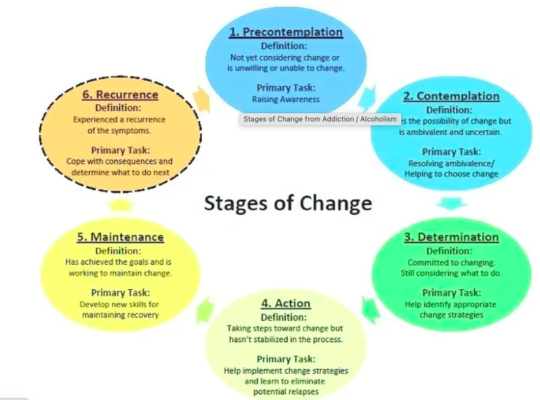Navigeren door de overgang: een uitgebreide gids en 5 tips voor een soepele overgang.
You are not alone
Menopause is a natural phase in a woman’s life, typically occurring between the ages of 45 and 55. While it’s a common experience, each woman’s journey through menopause is unique, filled with its own set of challenges.
I, as no other, know how you feel and know what you are going through. I feel a lot of people do not understand the impact of menopause and this can make you even feel worse. That is why in this blog, I will explore the scientific aspects of menopause and the feelings and emotions that come with it. I will offer five practical tips to help you navigate this significant phase in life. The tips work for a lot of woman but you are very unique so if you need tailored support, I got your back: You are not alone, believe me.
Understanding Menopause
Menopause is a natural process that happens to women as they get older. It’s when your period stops, and your body produces fewer hormones like estrogen and progesterone. This change can lead to all sorts of physical and emotional shifts. We all know getting unexpected hot flashes, having trouble sleeping, feeling your emotions go a bit wild, gaining weight, and suddenly having a bigger belly than you’re used to. Understanding the science behind it can help make sense of these real-life experiences.
Scientific Proof: The Role of Hormones
Estrogen is a hormone that plays a crucial role in regulating various bodily functions, including the menstrual cycle, bone density, and cardiovascular health. When estrogen levels decline during menopause, it can lead to a variety of symptoms and health concerns.
Hot Flashes: One of the most common symptoms of menopause is hot flashes. These sudden, intense feelings of heat can last for a few seconds to several minutes and are often accompanied by sweating and a rapid heartbeat.
Mood Swings: Hormonal changes during menopause can affect neurotransmitters in the brain, leading to mood swings, irritability, and feelings of sadness or anxiety.
Sleep Disturbances: Many women experience sleep disturbances during menopause, including insomnia and night sweats. These disruptions can contribute to fatigue and irritability.
Bone Health: Estrogen helps maintain bone density, so its decline during menopause can increase the risk of osteoporosis and fractures.
Weight Gain: Menopause can also be associated with weight gain, especially around the abdomen. Changes in hormone levels can lead to an increase in body fat and a decrease in muscle mass, making it more challenging for women to maintain their weight during this time.
5 Tips for Navigating Menopause
Now that we understand the ‘real live’ and the science behind menopause, let’s explore five practical tips to help you navigate this phase. Before We dive into the tips it is important to knwo that every ones of us is unique and we will deal with things differently. Listen to your own body and mind when you try things out so things do not get any more frustrating, I want to help.
Seek Professional Guidance
Before exploring any menopausal treatments, it’s crucial to consult with your GP, who plays a pivotal role in managing this phase of life. Your GP will carefully evaluate your personal health history and symptoms, enabling them to provide tailored recommendations. Your GP is your first go to in starting to navigate menopause effectively. My GP is just the most amazing man who has helped me tremendously, I could and would not’ve gone through this without his professional medical help.
Adopt a Healthy Lifestyle
A healthy lifestyle can significantly impact your menopausal experience. Regular physical activity helps maintain bone density, improves mood, and enhances overall well-being. A well-balanced diet rich in calcium and vitamin D is essential for bone health. Additionally, prioritizing sleep is crucial, as it can help manage mood swings and fatigue. A healthcoach can be your guide on the side when it comes to looking at sustainable lifestyle changes that will also keep you healthy after menopause.
Connect for Support
Menopause can be an emotionally challenging time. Reach out to friends, family, or support groups to share your experiences and feelings. Talking to others who are going through similar experiences can provide comfort and reassurance. You’re not alone on this journey.
Explore Natural Remedies
While traditional medical treatments are effective for some women, others prefer to explore natural remedies and alternative therapies. These may include herbal supplements, acupuncture, yoga, or mindfulness meditation. Keep in mind that the effectiveness of these approaches varies from person to person, so it’s essential to consult with your GP before trying any new therapies.
Stress Management
Stress can exacerbate menopausal symptoms, so incorporating stress-reduction techniques into your daily routine is vital. Deep breathing exercises, meditation, and mindfulness practices can help you manage stress and improve your emotional well-being. Finding time for self-care activities that bring you joy, whether it’s a spa day, reading, or pursuing a favorite hobby, is equally important.
Conclusion
Navigating menopause is unique for every woman. It’s a time of significant
physical and emotional changes. Because menopause is still not recognized enough it is essential that you find guidance to get through, every woman deserves this. You will even get to experience that this challenging time can also be one of personal growth and self-discovery.
By seeking professional guidance, adopting a healthy lifestyle, connecting with others for support, exploring natural remedies, and managing stress effectively, you can navigate menopause with confidence..
Remember that there is no one-size-fits-all approach to menopause, and it’s crucial to consult your healthcare provider for personalized guidance. Embrace this phase of life as an opportunity for self-care and renewal, and you may find it to be one of the most enriching chapters of your life. Menopause is a natural part of the female experience, and with the right tools and support, you can make it a positive and empowering transition.
I am here to help!
A health coach who specializes in guiding women through the menopausal phase can be an invaluable resource. They can help you develop a clear vision of your health and well-being during this transition, assist in setting achievable goals tailored to your specific needs, and provide the necessary accountability to keep you on track. Moreover, a health coach’s empathy and understanding can offer you a safe space to discuss your concerns, fears, and challenges, ensuring that you feel heard and supported throughout this transformative period. With their guidance, you can navigate menopause as smoothly as possible, embracing it as an opportunity for personal growth and positive change.







